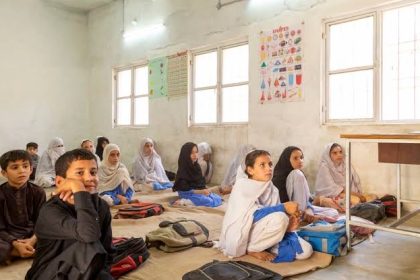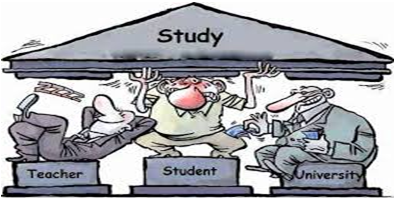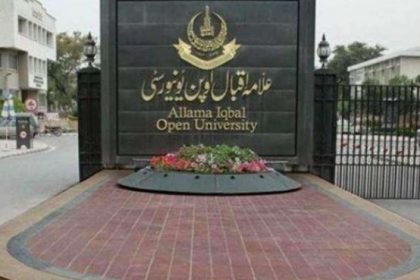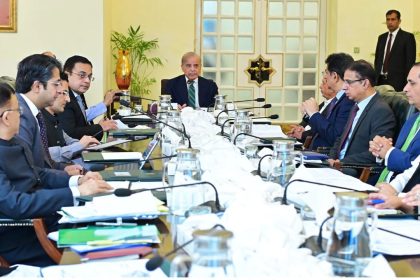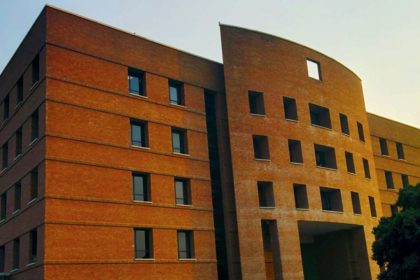We live in an era that has been dominated by globalization and rapid advancements in technology, especially artificial intelligence… An era in which the ability to communicate in multiple languages has become more critical than ever.
Recognizing this reality, the Ministry of Federal Education and Professional Training has started offering free language courses at public schools in Islamabad. The ministry said it has enrolled over 1,000 students from Islamabad in a free language course program. As per the details, initial focus would be on German, Japanese, and Chinese languages. The six-month courses are being taught by experts from the National University of Modern Languages (NUML).
But one would wonder why only these three languages were chosen. The answer is simple: because of their global importance. While English is already being taught at educational institutions in Pakistan as a second language, German is a key language in the European Union. Similarly, Japanese is important for communicating in East Asia, and Chinese is one of the most spoken languages worldwide, whose significance has increased manifolds after the launch of the China-Pakistan Economic Corridor.
Is it necessary?
In order to align Pakistan’s educational framework with global standards, proficiency in foreign languages is not just a necessity but also a requirement for excelling in the interconnected world. For students, speaking multiple languages can open doors to a world of possibilities, ranging from international collaborations to higher education opportunities abroad, and subsequently global career prospects.
One must also understand that in this tech-driven world, language skills are more crucial than ever, especially for developing nations like Pakistan. Most people have realize by now that artificial intelligence relies on natural language processing and cross-cultural communication. These language courses offer students in Islamabad a great opportunity to stay ahead of the curve, participate in international research, and contribute to multinational projects. But language skills are not just about technology – they also enhance cultural understanding, which is a valuable asset in a world where collaboration across borders is the norm.
Equipping them with these languages would make Pakistani students more attractive not just to employers but also educational institutions worldwide. Introducing language courses at public schools would not only benefit students’ language skills but also develop their cognitive abilities, such as problem-solving, critical thinking, and adaptability. It is also a proven fact that learning a new language improves memory, attention to detail and multitasking abilities. Therefore, one can expect a visible improvement in students’ overall communication skills – not only in the foreign languages being taught but also in Urdu and English.
Public perception and challenges
The public response to this initiative is expected to be positive, particularly among parents and teachers, especially because these courses are free and provide a win-win opportunity to the students. However, there may also be doubts about the effectiveness of the program, especially when it comes to implementation and the actual fruits it would bear. The ministry has so far not shared details regarding how those classes or progress would be monitored.
In addition to that, feedback would have to be invited from parents, teachers as well as students in order to gauge the effectiveness of the program and address concerns, if any. For that, authorities might have to recalibrate to completely change the strategies to increase public support for the program. Another thing that triggers worries is the future or continuity of the initiative beyond the initial six months. Although classes have already begun, the practicality of this initiative hinges on several factors like the quality of instruction, the resources available, and the students’ ability to commit to and benefit from the courses.
Partnering with NUML is a promising start, as the institution is known for its expertise in language instruction. But ensuring that the courses are accessible and engaging for all students will require careful planning and continuous monitoring. The ministry should also consider integrating these language courses with broader educational goals, such as exchange programs or partnerships with foreign schools, to motivate students and give them a tangible incentive to excel.
We have seen many brilliant initiatives falling prey to financial constraints in the past, so authorities would have to ensure sustained financial and administrative support to make this one successful. With the right approach, this program could serve as a model for educational innovation in Pakistan that could help build a generation of students who are truly global citizens.







